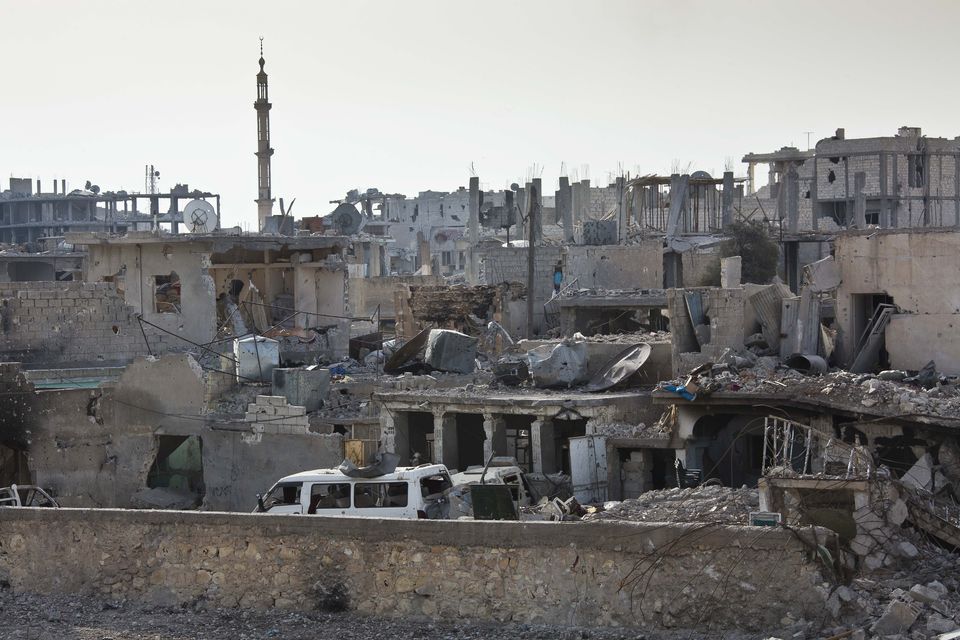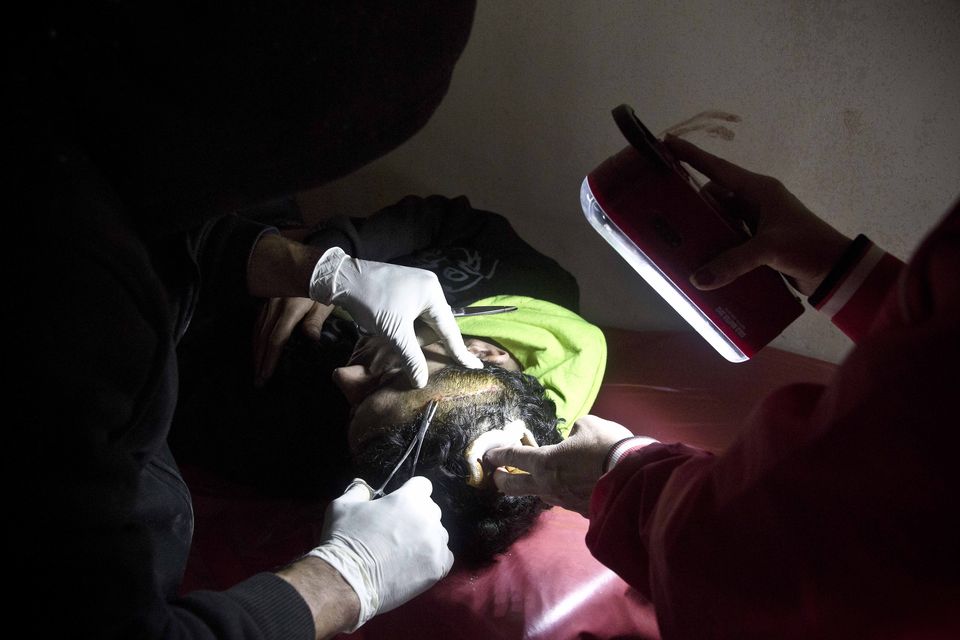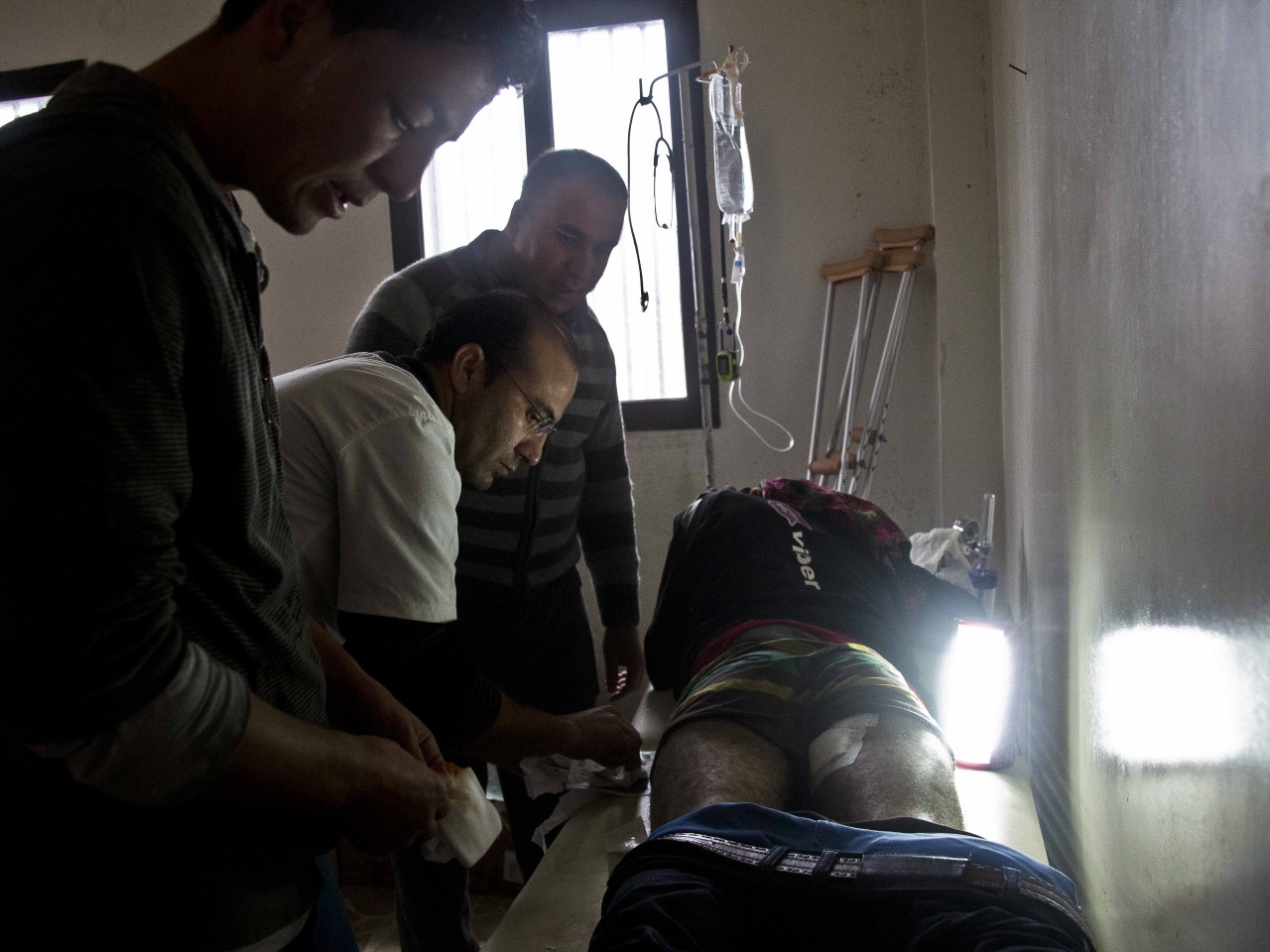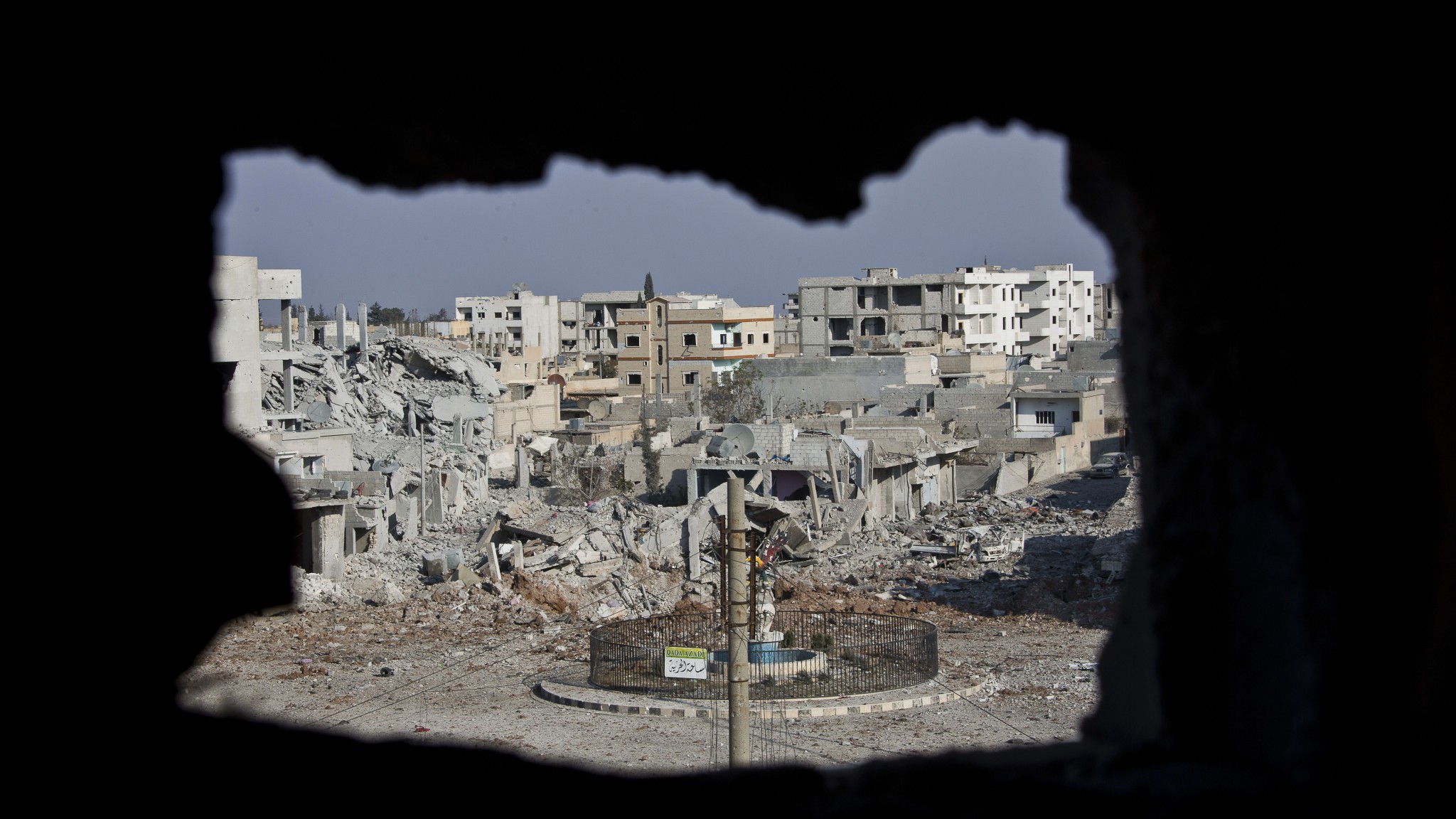Amidst An Ongoing Islamic War, How 3 Doctors And 5 Nurses Are Treating Anti-ISIS Soldiers
Inside the tiny clinic, saving lives and dealing with horrifying wounds of war comes first, and concerns such as keeping operating rooms sterile and cleaning up after surgery are on the back burner.
Seen in this 21 November 2014 photograph taken by Jake Simkin, a Kurdish fighter receives medical attention for a bullet which grazed his temple at a field hospital in Kobani, Syria. Like much of this besieged Syrian border town, most of its medical clinics are now in ruins.
And in the middle of the rubbles of most of Kobani's hospitals and clinics which now lie in ruins, only one is still operating — but its location is kept secret for fear it could be targeted by ISIS fighters
This Wednesday, 19 November 2014 photo shows what remains in Kobani, Syria after fighting between Islamic State militants, Kurdish fighters and US-led airstrikes.
Image via AP Photo/Jake SimkinWith priorities of saving lives and dealing with horrifying wounds of war, a team of only three doctors and five nurses are providing the only remaining medical services in Kobani. Inside the clinic, blood is splattered across the beds and floors and the team is sometimes forced to operate by torchlight since power generators regularly fail.
In this 21 November 2014 photo, a Kurdish fighter receives medical attention for a bullet just grazing his temple at a field hospital in Kobani, Syria.
Image via AP Photo/Jake SimkinMore than two months of fighting the ISIS has inflicted great destruction on this Kurdish town, leaving the Spartan clinic with only the very basic equipment, forcing it to regularly run out of supplies
In this 21 November 2014 photo, Dr. Mohammed Arif helps to deal with a wounded patient at a field hospital in Kobani, Syria.
Image via AP Photo/Jake SimkinThose with more critical wounds must make a mad dash for the border with Turkey, and wait there for a transport to a better hospital in the neighboring country.
But losing precious time in the perilous journey often diminishes their chances for survival.
"If we had a mobile operating unit, we wouldn't have to leave our wounded at the Turkish border to wait for six or 10 hours where they sometimes die," said Mohammed Aref, a doctor at the Kobani clinic.
Amid the wasteland and destroyed buildings, a sense of camaraderie has developed among the town's defenders who have for more than two months doggedly fought off the advances by ISIS fighters
In this Wednesday, 19 November 2014 photo, a female Kurdish fighter takes aim in Kobani, Syria. On the front lines of the battle for Kobani, Kurdish female fighters have been playing a major role in helping defend the Syrian town from an onslaught by the Islamic State extremist group.
Image via AP Photo/Jake SimkinThe Kurdish fighters of Kobani, backed by a small number of Iraqi peshmerga forces and Syrian rebels, are locked in what they say is a fight to the end against the Islamic State group, which swept into the town in mid-September.
The militants’ advance was part of a summer blitz after the Islamic State group overran large parts of Syria and neighboring Iraq.
Kobani, which once had a population of about 50,000, has seen some of the fiercest urban warfare in Syria’s civil war, now in its fourth year, and has paid a heavy price for battling the Islamic State extremists.
Often, members of the same family can be found on the front lines
In this Wednesday, 19 November 2014 photo, fighters from Kurdish popular defense units YPJ (women) and YPG (men) gather during a short break break before heading out to assault for new positions in Kobani, Syria. The women YPJ fighters are now integrated with the men's units, the YPG.
Image via AP Photo/Jake SimkinNineteen-year-old Shida's father was a fighter before her. After he was killed, she gave up hopes of becoming an artist and decided she must follow in his footsteps to honor his example.
She says her mother supports her decision. One of her six brothers is also fighting, the rest of her siblings are living in Turkey.
"I will not allow the enemy to take away my land and its soil," she said. "I will not leave my land."
While Aref and the others at the Kobani clinic say the immobility of their facility slows them down, still, they are dedicated to saving Kobani's wounded as best they can and dreams of someday rebuilding the town clinics and working in a safe operating theater
Helped by more than 270 airstrikes from a U.S.-led coalition and an American airdrop of weapons, the fighters in Kobani have succeeded in halting the militants’ advance and believe that a corner has been turned.
But the fight against the Islamic State is not slowing down.
“We know that the number (of wounded) will increase and more injured will come so we have to be ready,” said Aref. “The most important thing for us is having an operating room.”






